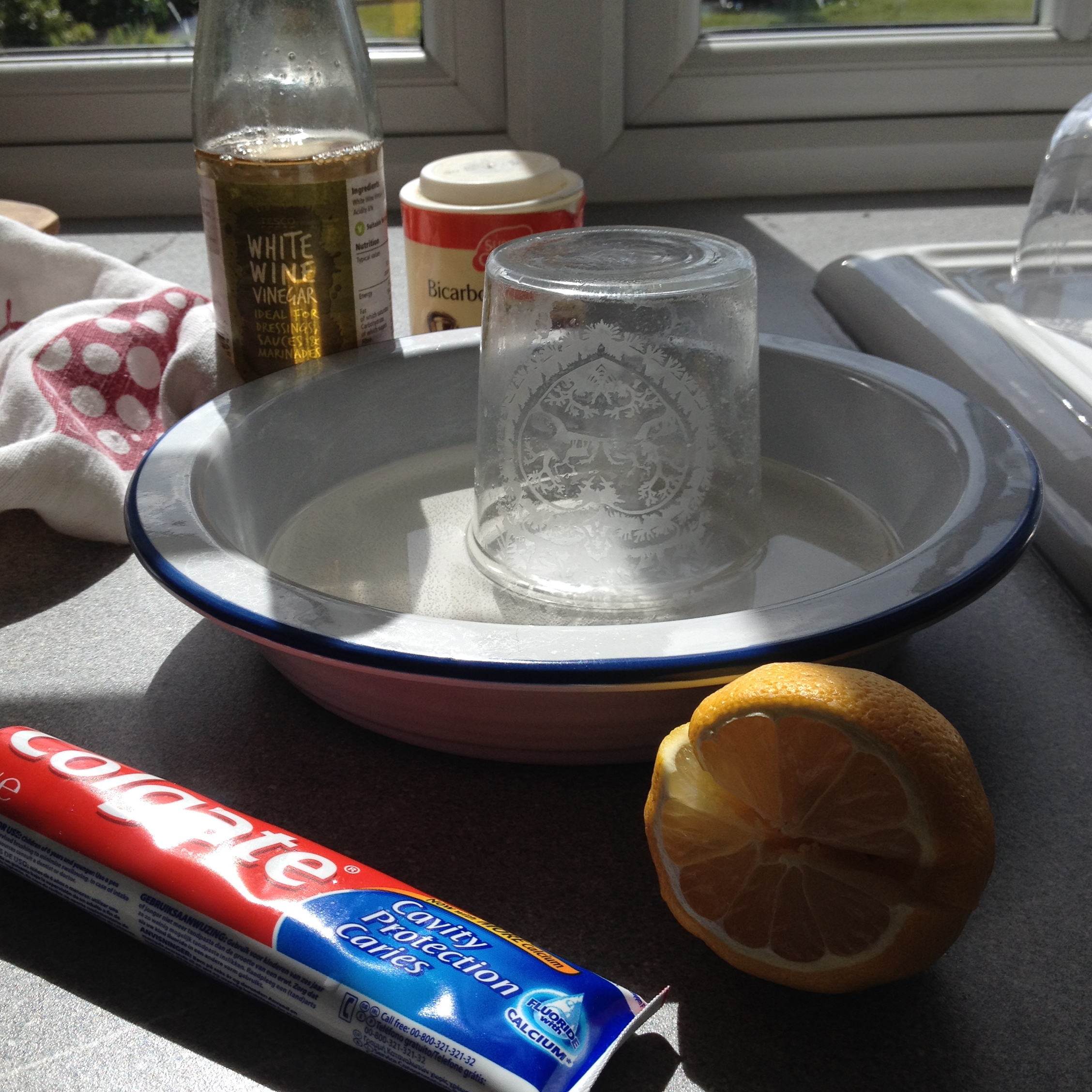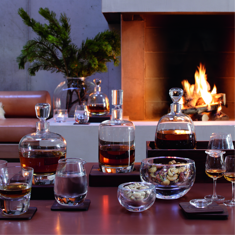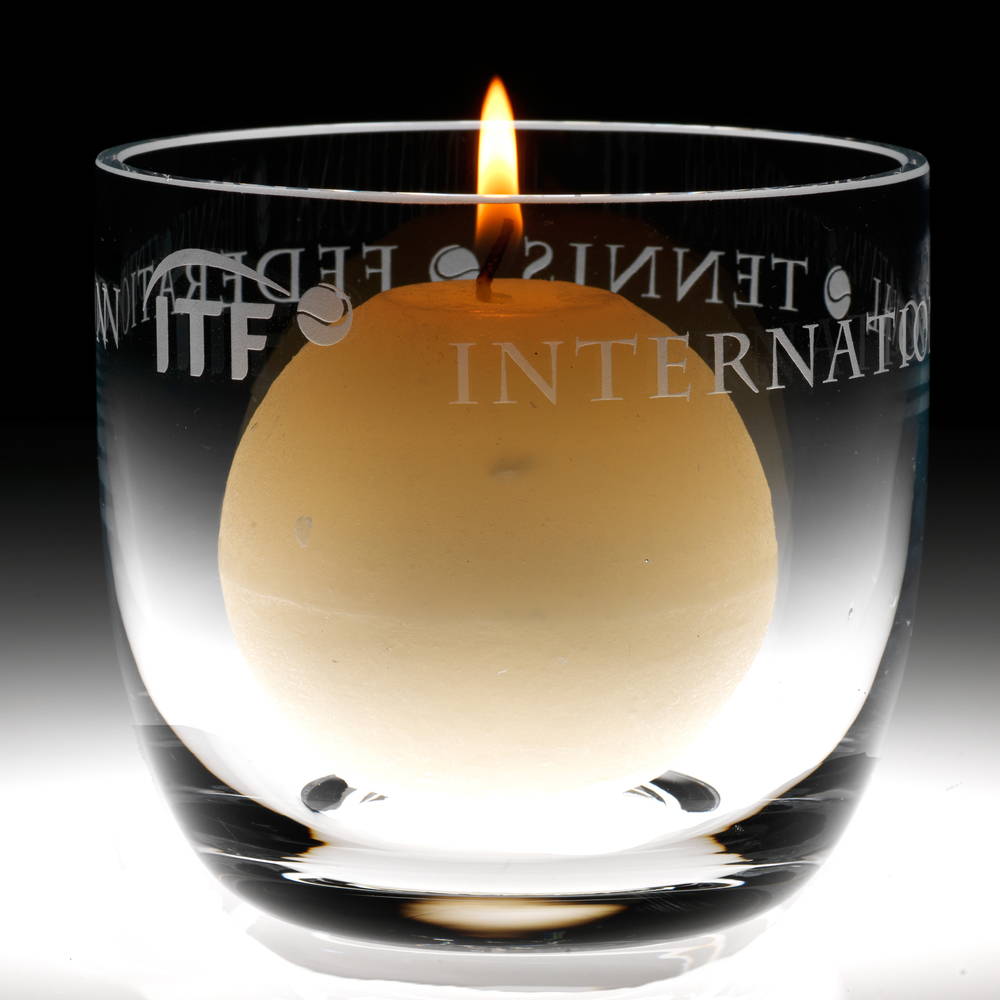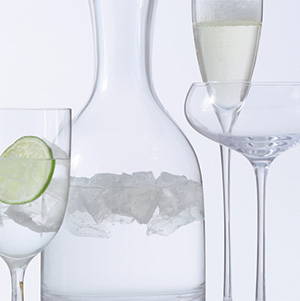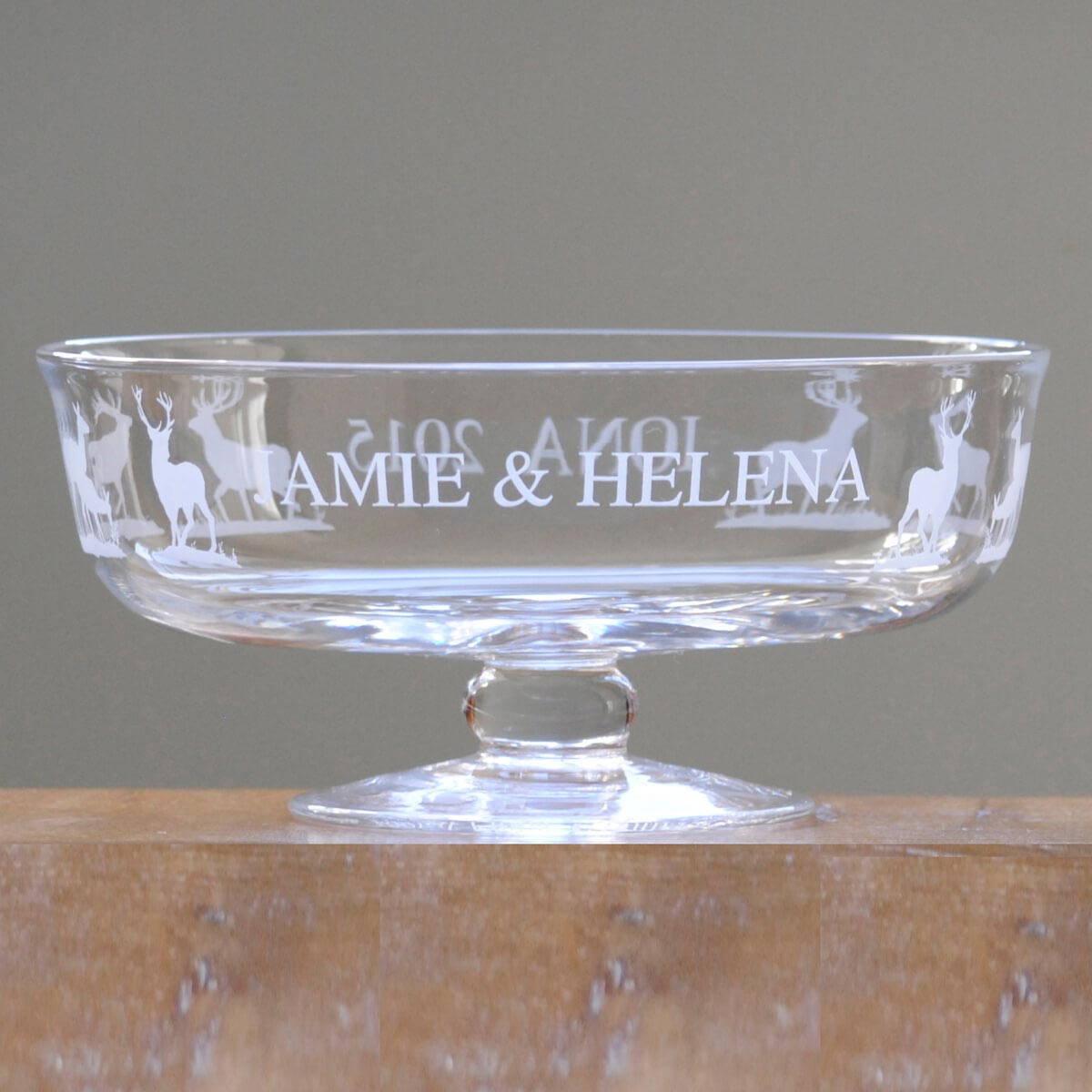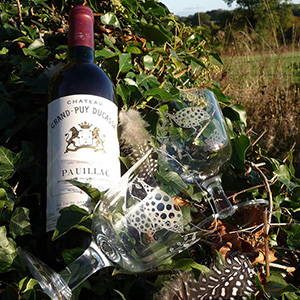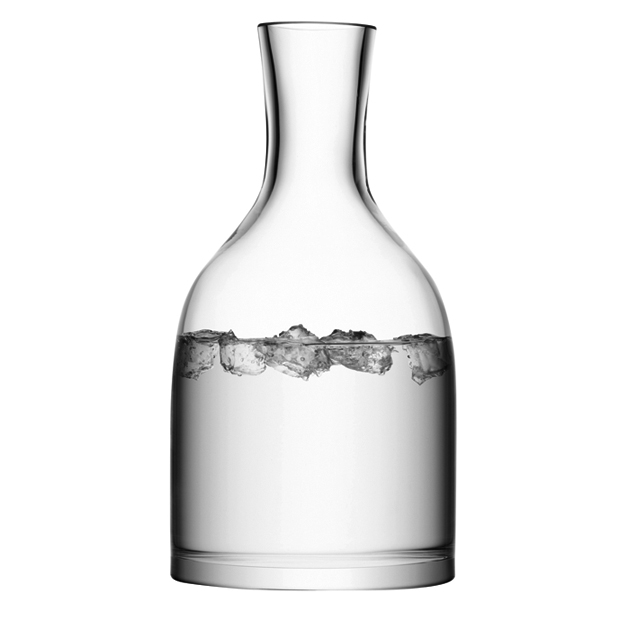Cloudy glass is something many of my customers ask me about, so I thought it might help to explain what causes it and what you can do about it. Firstly it is worth noting that glasses that are hand washed and dried with a cloth do not go cloudy. That said, many of us are too busy, or in my case too lazy to stand over the kitchen sink and prefer instead to bung everything in the dishwasher. Glassware of all types can suffer a variety of problems when washed in a dishwasher. Lead Crystal should never be washed in this way, the glass is relatively soft and scratches easily and the lead content can react to high temperatures. Many products even labelled as ‘dishwasher safe’ will in the long term suffer from knocks and scratches, high temperature variants and the harsh effect of bleach based detergent action.
So what happens in the dishwasher that causes our glasses to loose their sparkle? There are two main reasons our glass goes cloudy:
Filming Caused by hard water in which the calcium and magnesium in hard water is left in drops on glassware at the end of the dish washing cycle and dries in place. Detergent will not remove these spots and each time they are washed, new spots will accumulate increasing the amount of filming. Use of a rinse aid will help to shear water from the glass, preventing mineral build up. Food films can form on glassware when the calcium and magnesium in hard water combine with protein in the residue of food such as milk, eggs or meat. Hot water also will act to denature or “set” these proteins onto the glass.
Etching The combination of soft water, alkaline dishwasher detergents, the chemical composition of glassware, and excessive water temperature can cause erosion or pitting of the surface of glassware. This condition is referred to as “etching”. The first sign of etching is iridescence, a “rainbow” appearance on glassware. The true cause seems to be related to very soft water and/or the over use of detergent since the largest component of a dishwasher detergent is polyphosphate, a water softener which is also found in rinse aids. Metal ions are readily dissolved out of glassware in very soft water and very hot water can speed this process.
The good news is that Filming can be put right, the bad news is that Etching is irreversible.
So, how do you know which is which?
To determine the type of cloudiness, try gently scratching the surface of the glassware with a pin or other sharp object. If the pin scratches off some of the cloudiness, it is due to filming. Another way to identify the cause is to rub vinegar on the cloudy area. If the surface is clear when it has dried, the type of cloudiness is a film. If the surface remains cloudy after rubbing it with vinegar, the cause of the cloudiness is probably etching.
What can you do about it?
Once you have determined the type of cloudiness your glasses are suffering from you have a few options.
If filming is the problem:
Method 1: White Vinegar
White vinegar is a weak form of acetic acid which will shear water off glass quickly. Using a clean dish cloth with a few tablespoons of vinegar on it wipe the glasses down after cleaning in warm soapy water. If you find the smell of Vinegar too horrid, try diluting 2 cups of it with water in a plastic basin and soak the glasses in it. Do not rinse the glasses afterward but dry with a good quality clean linen glass cloth.
Method 2: Baking Soda
There are also two ways to clean glassware with baking soda. Sprinkle baking soda on a damp cloth or small brush and then gently scrub the glass. Afterward, soak the glass in the same vinegar solution as above (2 cups vinegar plus a tub of water) for about 20 minutes.
In the second variation, use baking soda only. Add 1 teaspoon of baking soda to a tub of hot water and soak the glasses for 30 minutes, then wash with hot water and a mild detergent, and then rinse in water and dry immediately with a linen tea towel, I’ll give you one free when you use the coupon code ‘Tea towel’ with your next order!
Method 3: Lemon
After washing a glass in warm water, rub it all over with half a lemon. In addition to removing the film that builds up, lemon removes the odours food and drink can leave behind. Rinse with water and a little vinegar afterward as above.
Method 4: Toothpaste
Weird maybe, but this is another easy cleaning method using everyday household items. Use a thoothbrush and toothpaste to scrub at the glass for about a minute. Be sure to cover the entire glass inside and out. Rinse the glass in hot water afterward to remove the toothpaste, then rinse in your Vinegar water mix as above.
If Etching is the problem it may be too late to resolve. However it is worth checking a few things to avoid the problem in the future:
Check 1:
If you have soft water do not use Salt in your dishwasher. If you have one check the settings are not too high on your water softener. It is also worth trying halving your tablets.
Check 2:
Are you running your dishwasher on a long hot wash? If so when washing glasses reduce the wash cycle and turn off any ‘hot boost air dry’ option which some of the fancier dishwashers offer.
Check 3:
If you are wanting to clean really dirty stuff and metal, knives, spoons and pots, consider hand washing your glasses so you can run your dishwasher on a cycle that suits the needs of the dirtier stuff.
So to sum up, your best option is to hand wash and dry your glasses with a linen glass cloth, or if you want to put your glasses in the dishwasher, be prepared over time to replace them. Plastic beaker anyone?
Special offer to hand washers: Use the coupon code Tea towel at checkout to receive a Free Linen Union Tea towel with your order.
Special offer to Machine washers: Checkout our Special offers page. We currently have a great offer on a beautiful classic stemmed glass called Asquith. Keep checking back as we regularly update this page with really good bargains.
If you would like to hear more about our News, Special offers, Exhibitions and Sales fill in your details here.
[wysija_form id=”1″]

